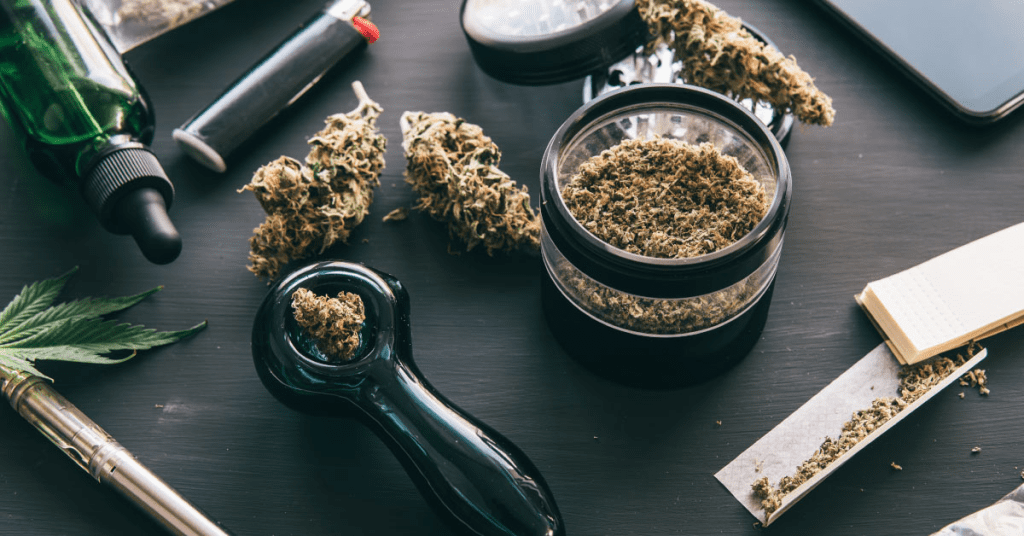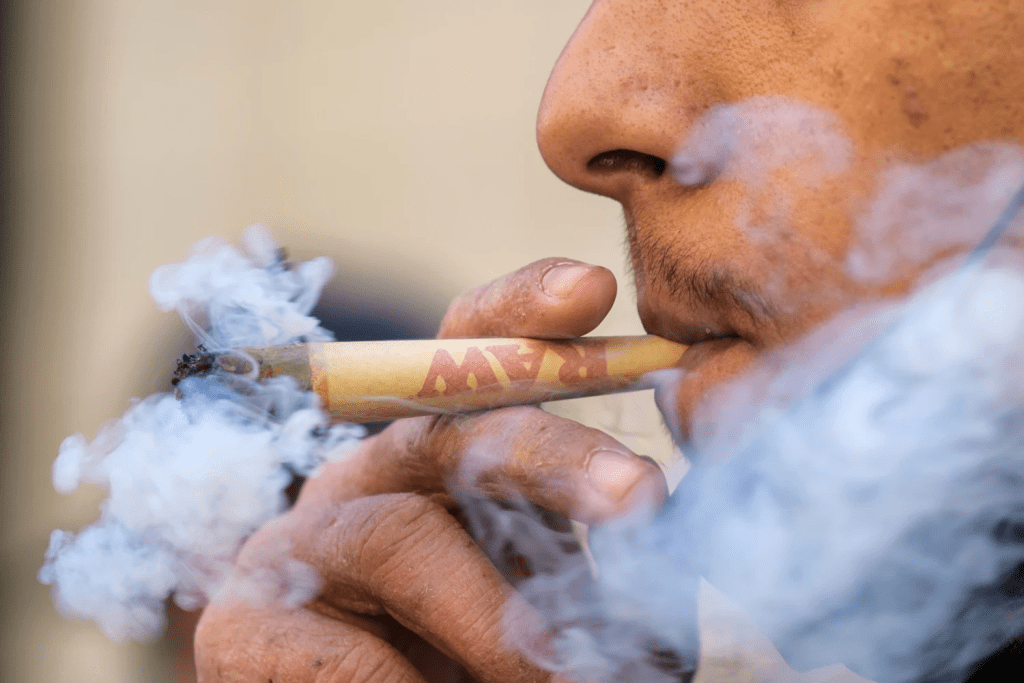As marijuana becomes more widely accepted for medical, recreational, and anxiety-relief purposes, its popularity is growing rapidly among adults worldwide. However, recent research is suggesting that adults over the age of 30 might want to rethink their marijuana use. A study conducted in Australia raises concerns about the long-term impacts of cannabis use on life outcomes for individuals beyond their twenties. If you’re still smoking weed at 30, scientists may have some bad news for you.

Smoking Marijuana After 30 Might Not Be a Good Idea
Are you over 30 and still indulging in the occasional—or frequent—joint? A study from The University of Queensland in Australia might have you reconsidering. Researchers analyzed life outcomes of marijuana users and found that individuals who continued smoking after turning 30 tended to score lower on several measures of success. These findings suggest that prolonged cannabis use in adulthood could negatively impact key areas of life.
The study specifically focused on what are termed “success outcomes” for both marijuana and amphetamine users. By analyzing data from over 8,000 mothers and 2,000 children, researchers tracked the impact of drug use at ages 21 and 30. The success rates were based on nine criteria, including:
- Education
- Income
- Homeownership
- Relationship status
- Overall happiness
What’s more, these reduced success rates were particularly significant for individuals who continued smoking marijuana past the age of 30, compared to those who quit or never used cannabis.
The Study’s Limitations
Before you panic and vow to ditch marijuana for good, it’s important to keep in mind that the study has several limitations. Here are a few reasons why the findings might not be universally applicable:
1. Outdated and Narrow Data
One major limitation is that this study used Australian data, primarily from female mothers. Additionally, some of the information dates back to the 1980s, making it less reflective of today’s global marijuana-using population. As a result, the findings may not apply to men, younger users, or people living in other countries.
2. Questionable Markers of Success
The criteria used to define “success” are debatable. For example, homeownership and relationship status were key markers in the study. However, these factors can vary greatly depending on personal preferences, geographic location, and even lifestyle choices. For instance, owning a home may not be a priority for individuals who embrace a digital nomad lifestyle. Similarly, being in a relationship doesn’t necessarily indicate success, as many single individuals lead fulfilling, successful lives.
3. The Influence of Other Drugs
Another limitation is that the study did not account for other drugs that participants might have been using. The researchers admitted that they lacked sufficient data on additional substances like ecstasy, opiates, or synthetic drugs. Some participants may have been involved in polydrug use, which could have influenced their life outcomes. Therefore, the findings may reflect the consequences of multiple drug dependencies rather than cannabis use alone.
What Does This Mean for Marijuana Users Over 30?
Does this study mean you need to give up marijuana entirely once you turn 30? Not necessarily. What it suggests is that prolonged, frequent use of marijuana beyond a certain age might negatively affect certain aspects of life, especially if overuse leads to dependency.

If you’re using marijuana recreationally or occasionally, it’s not an automatic recipe for failure. However, it’s important to be mindful of your consumption and its impact on your life. Are you struggling with motivation? Is your cannabis habit eating into your savings? Is it affecting your relationships or career performance? These are the questions you should ask yourself.
How Marijuana Could Affect Key Areas of Your Life
The study’s results suggest that marijuana use after 30 can affect some specific areas, such as:
1. Education and Career Progression
Heavy marijuana use can impair cognitive function, memory, and concentration, all of which are crucial for academic and career success. Individuals who overuse cannabis might find it harder to stay focused or achieve their professional goals, potentially leading to lower income levels or stalled career progression.
2. Financial Stability
Frequent marijuana use can be expensive. If your habit leads you to spend more than you can afford, it may impact your ability to save for important life milestones like homeownership or retirement. The study found a correlation between continued marijuana use and lower homeownership rates, possibly reflecting the financial burden of prolonged cannabis consumption.
3. Relationships
Cannabis use can also impact personal relationships. Whether it’s a partner, family members, or friends, overuse can cause strain if it interferes with your ability to connect, communicate, or maintain responsibilities. The study showed that those who continued using marijuana after 30 had lower relationship success, which might be linked to these challenges.
What Should You Do?
If you’re over 30 and enjoy marijuana, the key takeaway from this study is moderation. Occasional or recreational use is unlikely to derail your life, but if marijuana starts affecting your daily responsibilities or personal goals, it may be time to reassess your habits.

Here’s what you can do to maintain balance:
- Set Limits: Ensure that marijuana doesn’t become the focal point of your daily routine.
- Monitor Your Performance: Pay attention to how cannabis affects your productivity, mood, and motivation. If you notice a negative impact, consider scaling back.
- Prioritize Responsibilities: Make sure that your work, relationships, and personal goals come first. If cannabis is interfering with these, it may be time to take a break or quit.
Final Thoughts: Should You Stop Smoking Weed at 30?
The message from this study isn’t necessarily that you have to give up marijuana entirely when you hit 30. Instead, it’s a reminder to be mindful of how your habits impact your overall life trajectory. If marijuana use starts getting in the way of your goals or responsibilities, it’s important to take stock and make adjustments.
Ultimately, moderation is key. A balanced approach to cannabis use can allow you to enjoy the benefits without jeopardizing your success. So, if you’re still smoking weed at 30, just be sure to keep it in check. Your future self may thank you for it.


